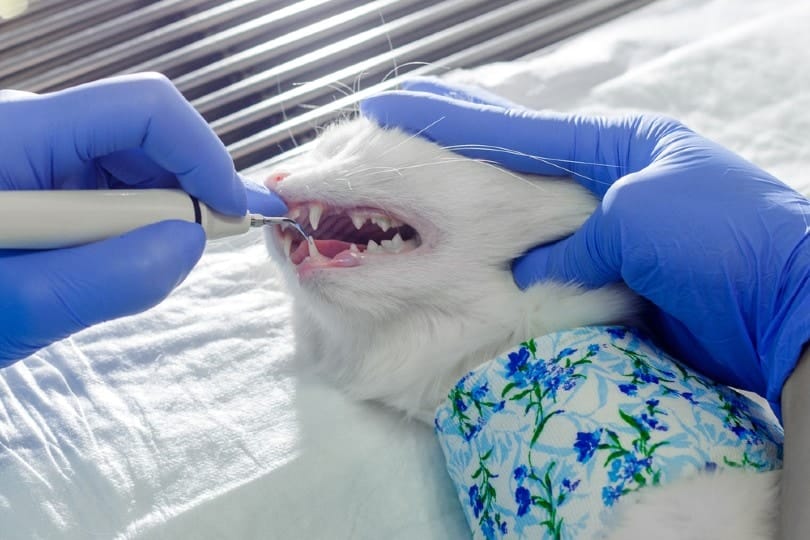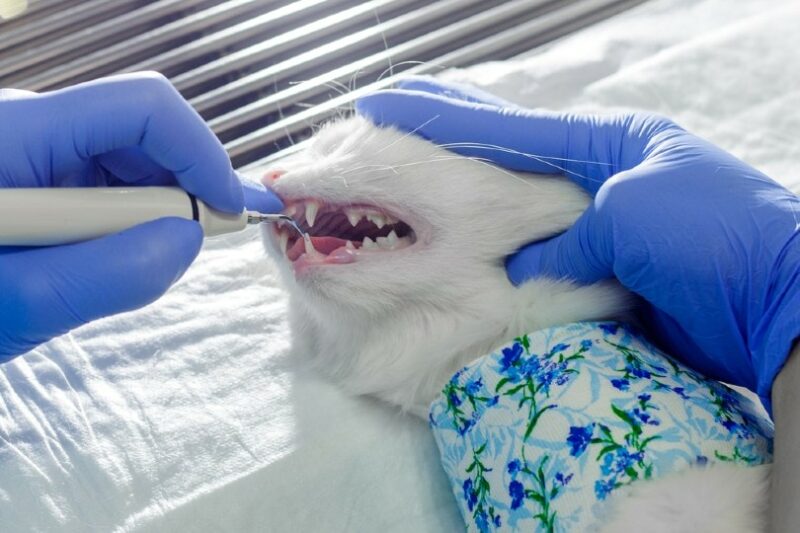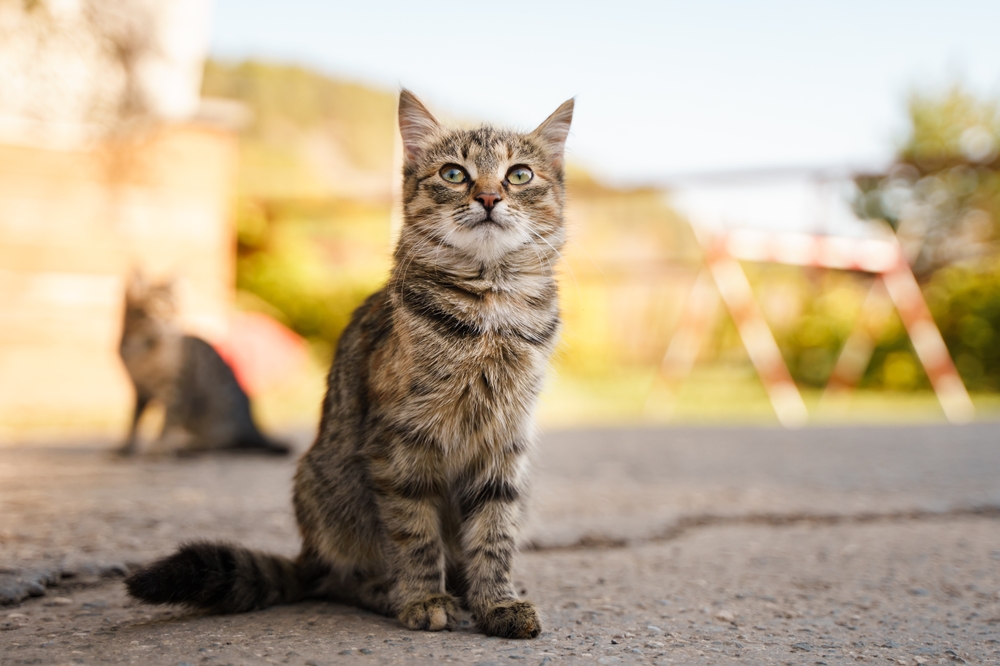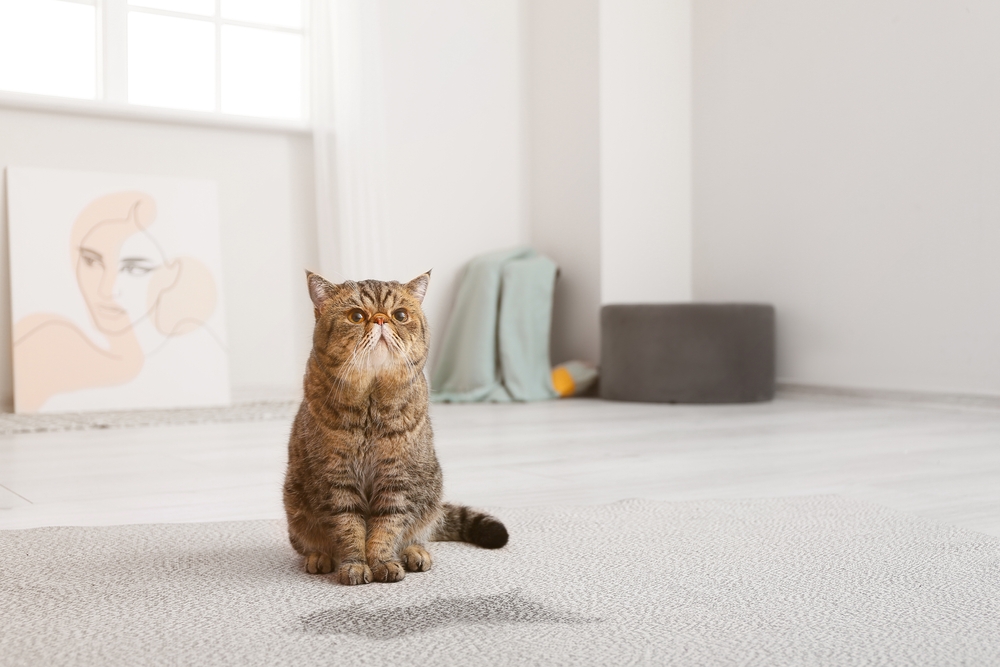We all rely on dental professionals to keep our teeth in tip-top shape. The same concept extends to your kitties—dental work is essential for oral health. Taking your cats in for routine cleanings will reduce the likelihood of dental disease later in life. It also helps remove all the hard-to-reach buildup and tartar (or calculus) you can’t get with at-home brushing.
We’re sure you’re wondering how much these cleanings will cost. The average price in the U.S. is between $300–$400, depending on where you live and a few other factors that we explain below.
The Importance of Feline Dental Health
Teeth brushing might be an easy thing to overlook in vet care, but it’s a vital part of cat health. These little fluff balls rely on us to clean their teeth to prevent plaque and tartar buildup from kittenhood.
If you notice tartar buildup, it’s even more vital to get your cat in for a professional cleaning. Daily-forming plaque buildup leads to tartar, which is gray, brown, or yellow-colored and stiff—impossible to remove at home by brushing. Once the tartar sits on the gumline for a while, that’s when you might run into trouble.
Dental disease is extremely common. It can affect up to 85% of domestic house cats 3 years of age and older and the risk increases with age. These numbers are tremendous. Cat teeth brushing is often neglected unintentionally. But letting your cat go without dental care is almost a surefire sign they will experience periodontal disease as they age.
Periodontal disease doesn’t just cause trouble like tooth loss and chronic pain. A 2023 study showed that it can also lead to kidney disease, reduced lifespan, reduced quality of life, and decreased interactions with the owners. So, it’s important not to skip over this area of care for your cat’s health and livelihood.
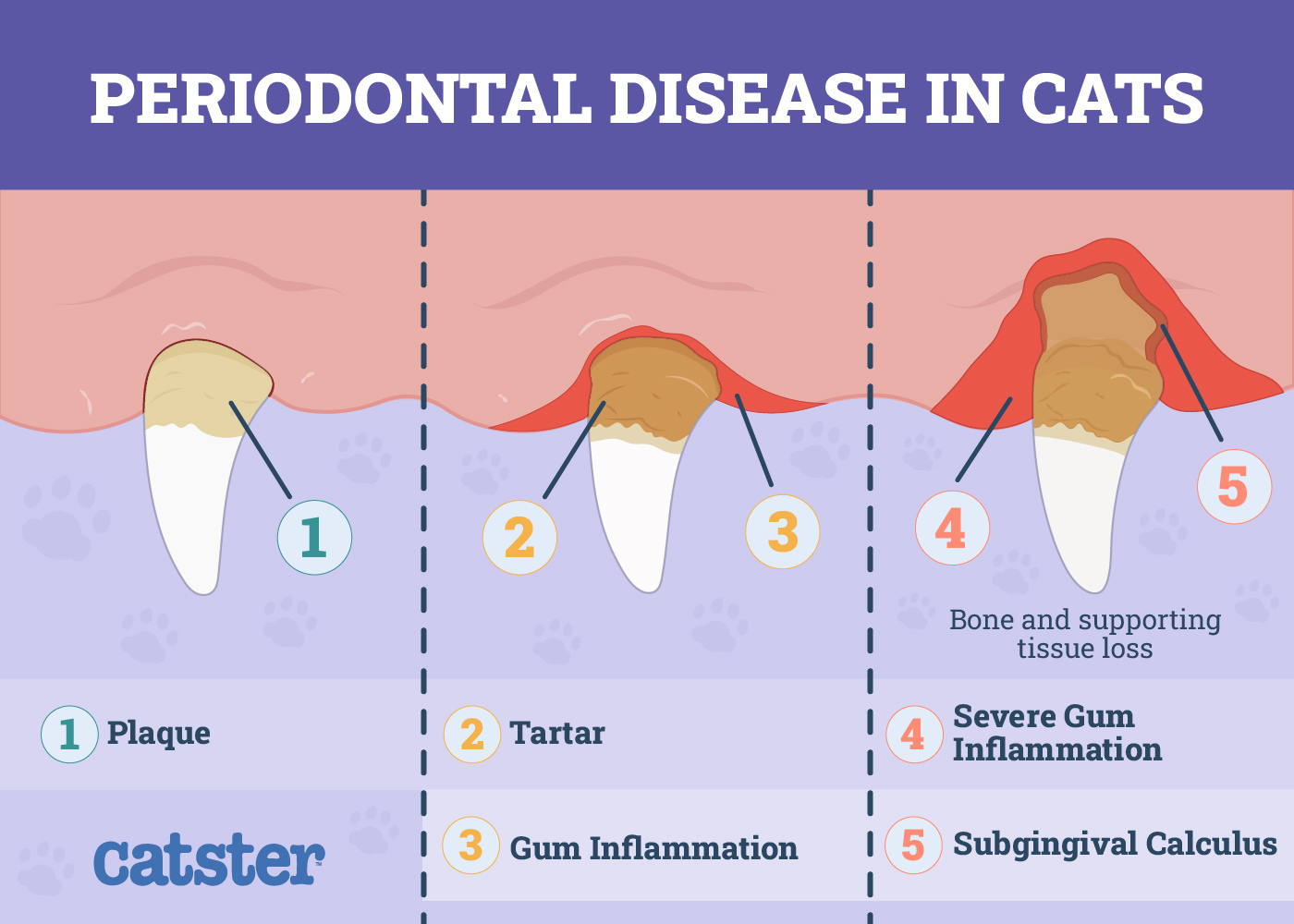
How Much Does Professional Cat Teeth Cleaning Cost?
On average, you can expect to pay between $100 and $400 for a dental cleaning, depending on a few factors.
- Age: Age says a lot about your cat’s teeth. As cats get older, plaque and tartar buildup are a lot more common and damage can be more severe, meaning that your cat may require teeth extractions. Additionally, anesthesia in older cats might be more complicated or require more pre-anesthetics checks, which might increase the costs.
- Location: Costs usually fluctuate depending on where you are on the map. Larger, high-end cities will obviously charge more than a rural vet.
- Clinic: Each clinic will have its own rates, depending on the vet.
- Out-of-Pocket: Each clinic will have its own rates, depending on the facilities, the equipment, and the team’s specialization level.
While these factors can influence the price, most veterinarians charge a flat-rate fee for routine dental cleanings. Additional costs can come into play if there are unexpected factors during your visit. Your trusted veterinarian determines the total costs and will provide you with an estimate before the procedure.
Teeth Cleaning Costs By State
You might notice that each vet’s costs vary drastically depending on where you live. As we mentioned earlier, the country’s average is between $300 to $400, which can increase depending on other factors.
Where you live in the States will impact the cost of the cleanings. On one hand, Midwestern States might have cheaper rates than some East Coast States. For example, in Kansas, the average cost is $261. But in Massachusetts, the average cost is $352—almost a $100 difference!
On the other hand, some less-populated states, like Idaho ($307), may still be more expensive than densely-populated states, like New York ($252).
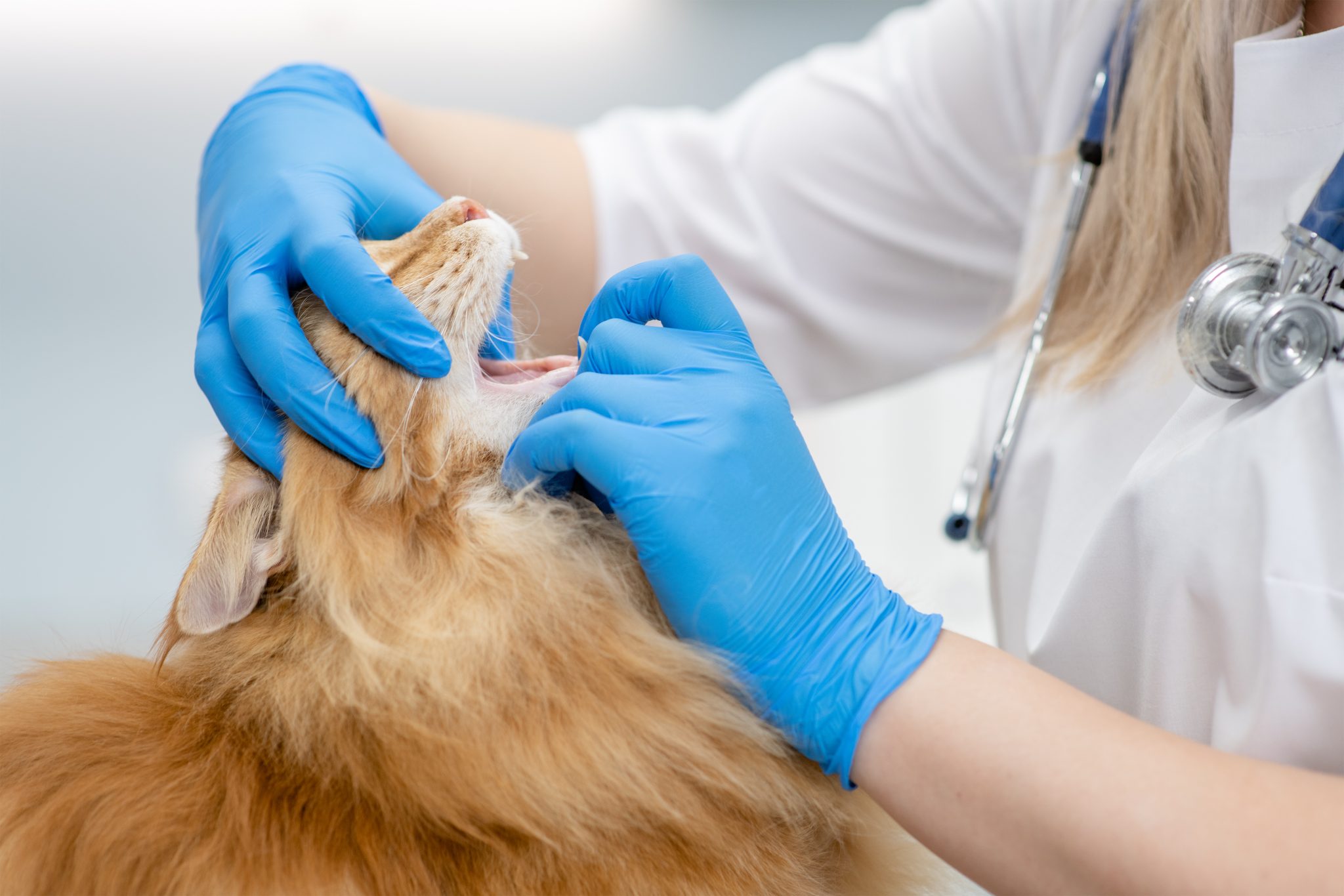
Additional Costs to Anticipate
It can be hard to predict the exact cost of a dental cleaning just by examining your cat’s mouth in the consultation room. After your cat is anesthetized and your vet does some radiographs of their mouth, they will be able to assess the health of the mouth fully. In addition, your cat may need dental extractions and home treatment after the procedure. These are the possible additional costs that you should consider.
- X-rays ($75–$250): If your vet is noticing any unusual cracks, cavities, or breaks in your cat’s teeth, they might need an X-ray for a closer look.
- Teeth extractions ($50–$130 per tooth): Depending on the severity of the problem, dental extractions might be necessary.
- Treatment ($25–$100): If your cat has an infection, your vet might prescribe antibiotics. If they have teeth extracted, a painkiller might be prescribed for a few days.
So, now you can see how prices can climb depending on the services provided. Your vet will go over any additional costs before proceeding with further action. You should always have the right to choose before you pay any extra money.

How Often Should I Get My Cat’s Teeth Professionally Cleaned?
You should always follow your veterinarian’s guidance on this. Generally speaking, most cats need a professional cleaning once per year, but some cats may need it more frequently. Your vet uses special equipment to remove tartar from your cat’s teeth surfaces and gum line while your cat is under anesthesia.
It is essential that you still keep up with routine care at home, trying to brush your cat’s teeth every day. Brushing your cat’s teeth isn’t a substitute for professional cleanings. At home, you can remove the plaque that forms every day and that, inevitably, transforms into plaque unless it’s brushed away.
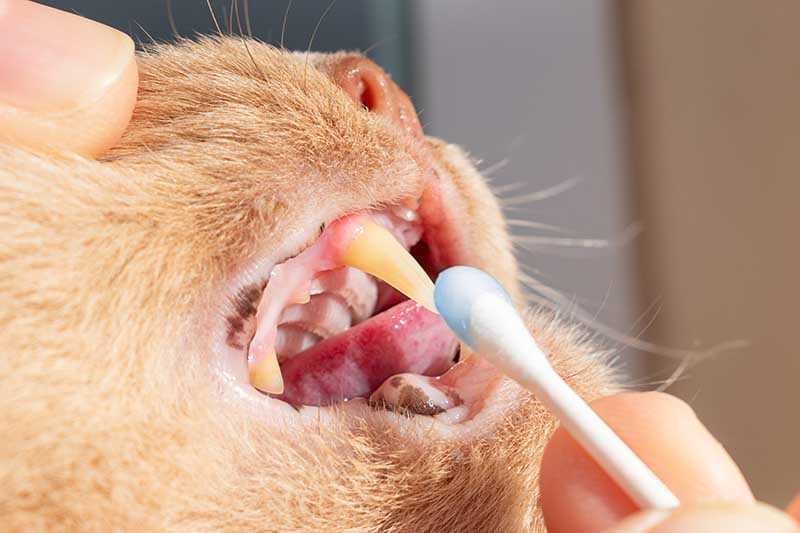
Does Pet Insurance Cover Dental Fees?
With an increase in vet care awareness, many insurance companies are tailoring policies for our beloved pets. Vet costs can be so high and take us by surprise sometimes. It brings a vital peace of mind, knowing your pet is covered.
So, what exactly does pet insurance include? It depends on the provider. Like human insurance policies, you can tailor the plan to fit your needs. Many cover emergencies but also have the option for preventive care and grooming coverage.
To know whether dental care is covered, explore available plans to see if it fits your needs. In many standard policies, services like dental cleanings are not included. However, companies like Embrace Pet Insurance do create policies to cover dental accidents.
Having this coverage is a terrific idea since one trip to the vet may eventually warrant some type of dental surgery.

What to Do For Your Cat’s Teeth in Between Cleanings
You have quite a few options to keep your cat’s mouth hygiene up to par at home.
- Finger brushing: This is the main method to keep your cat’s teeth in good condition. Using a finger brush, you can gently massage the teeth, gums, and (if you’re lucky) the tongue. Get your kitty used to this from an early age and things will go smoother.
- Offer dental chews: Many companies make dental chews and treats to maintain or improve your cat’s dental health. These should be offered in moderation and as an extra help to finger brushing.
- Offer a dental kibble diet: Dry commercial dental diets are aimed to keep the teeth nice and clean since they feature larger kibble which your cat will chew, scraping the surface of the teeth as they eat.
- Utilize water additives: You can add cat vet-recommended solutions to your cat’s drinking water for extra cleaning power.
Conclusion
Your cat might not be a huge fan of dental cleanings, but they only benefit from it. Regular cleanings also eliminate the likelihood of dental surgery later in your cat’s life. Routine care is easier on your wallet than a massive bill after years of mouth neglect.
So, even though it might feel like an expense you can put off, it’s worth it in the long run. Work with your vet or pet insurance company to help answer any financial questions or concerns.
Related Read:
- 7 Best Cat Foods for Older Cats with Bad Teeth 2021 – Reviews and Top Picks
- My Cat Lost a Tooth – Should I Be Worried?
Featured Image Credit: Burdun Iliya, Shutterstock

